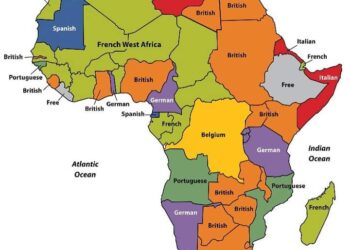The national vice chairman (North-west) of the ruling All Progressives Congress (APC) Mallam Salihu Moh Lukman, has called on the federal government to convert seven months arrears yet to pay members of the Academic Staff Union of Universities (ASUU) to scholarship and compensation for Nigerian students.
ASUU, who has been on strike for seven months was ordered, Wednesday, back to classes by the National Industrial Court (NIC) presided over by Justice Polycap Hamman.
Justice Polycap Hamman ruled that ASUU strike “is a breach of section 18(1) of the Trade Dispute Act” and accordingly ordered ASUU to call off the strike.
The industrial court observed that the strike has caused irreparable damage to the careers of many students in Nigeria.
Reacting to the development through a statement released Wednesday in Abuja, Lukman described the NIC judgement as “a vindication of the position I expressed last year when NLC National leadership organised a so-called one-week warning strike against Kaduna state government and Resident Doctors led by National Association of Resident Doctors (NARD) were also on strike, at the same time.”
According to the former Director General of the Progressive Governors Forum (PGF): “The debate about whether government should pay ASUU members for the seven months they are on strike should be treated based on the provisions of their employment contract. Anything to the contrary will amount to encouraging ASUU, and by extension other unions to engage processes of collective bargaining based on blackmail antics and show of crude power.
“This must be discouraged. If government will at all consider any payment, it should be to compute what ASUU members could have earned during the period and pay it to students as scholarship or some sorts of compensation for the ‘irreparable damages to their careers’ occasioned by the strike. In fact, ASUU members should voluntarily and willingly accept this as part of the discharge of their community service function.”
While charging the Ministry of Labour and Employment not to abdicate from its responsibility henceforth, Lukman said: “Imaging that processes of mediation, conciliation and compulsory adjudication by Ministry of Labour as provided under the Trade Dispute Act immediately ASUU served notice of strike.
“Certainly, a judgement by either Industrial Arbitration Panel (IAP) and NIC would have been obtained before the commencement of the strike. Sadly, here we are, the same judgement that would have been delivered before the strike commences on February 14 is only obtained about seven months into the strike.
“Better late than never. However, the demand must be made clearly, never again should Ministry of Labour abdicate from its responsibility of arresting strikes based on ability to activate processes of mediation, conciliation and compulsory adjudication. The Ministry of Labour must be reformed to discharge these functions effectively and efficiently.
“Democracy is about rule of law. At all times, laws must be activated to regulate conducts of citizens and government officials. Every step must be taken to enforce the judgement of Justice Polycap Hamman. The last seven months have been traumatic for parents and innocent students. Everything must be done to bring to immediate end the sufferings and hardships being inflicted by the seven months strike.”
The APC chieftain recalled his earlier position during the NLC strike that “provision of dispute settlement is required to go through processes of mediation, conciliation and compulsory adjudication through the Industrial Arbitration Panel (IAP) and National Industrial Court (NIC), the reality is the almost complete absence of any mechanism to negotiate resolution or at the least implement agreement. Over the years however, conciliation and mediation, as functions of labour administration, have greatly declined due to lethargic factors largely because of indecisiveness of Ministry of Labour. For instance, the processes for access to both the IAP and NIC, being the two legal bodies with the primary responsibility of dispute settlement that are legally binding are mainly through the Minister of Labour. It is curious to ask, out of all the plethora of industrial disputes leading to strikes, how many have been filed before the IAP and NIC to pre-empt strikes?
“In addition, given that awards by both IAP and NIC are not made directly to the parties but through the Minister, who has the right to refer the parties back to both the IAP and NIC, how many judgements have been obtained and to what extend has the Minister or his representatives taken actions to refer parties back to IAP and NIC to enforce existing judgements and therefore avoid strikes? Without going into all the legal technicalities, which are the vocation of lawyers, in several cases the Ministry of Labour is laid back and hardly intervene to prevent strikes from taking place through brokering negotiations between workers’ and employers’ organisation until strike commences.”




